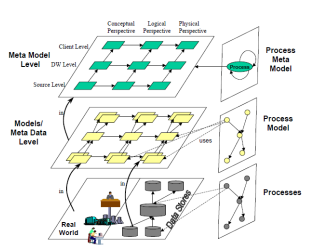
Downloads
Keywords:
Data Warehouse Metadata Management: Ensuring Data Quality and Governance
Authors
Abstract
In an age defined by the abundance of data, organizations face the formidable task of not only collecting but also extracting valuable insights from diverse sources of information. Data warehousing, a critical component of modern data management, emerges as a strategic solution to this challenge. This abstract provides a concise overview of the concept, significance, and primary features of data warehousing.
A data warehouse is a centralized repository that facilitates the collection, storage, and management of data from multiple sources. Unlike operational databases, which are designed for transactional processing, data warehouses are tailored for analytical purposes. They serve as a dedicated platform for data consolidation, transformation, and the provision of a consistent, accessible dataset.
The principal objective of a data warehouse is to offer a comprehensive and unified view of an organization's data, enabling decision-makers to extract valuable insights, detect trends, and make informed, data-driven decisions. As a cornerstone of business intelligence and analytics, data warehouses empower organizations to convert their data assets into a competitive advantage.
Article Details
Published
Issue
Section
License

This work is licensed under a Creative Commons Attribution-NonCommercial-ShareAlike 4.0 International License.

